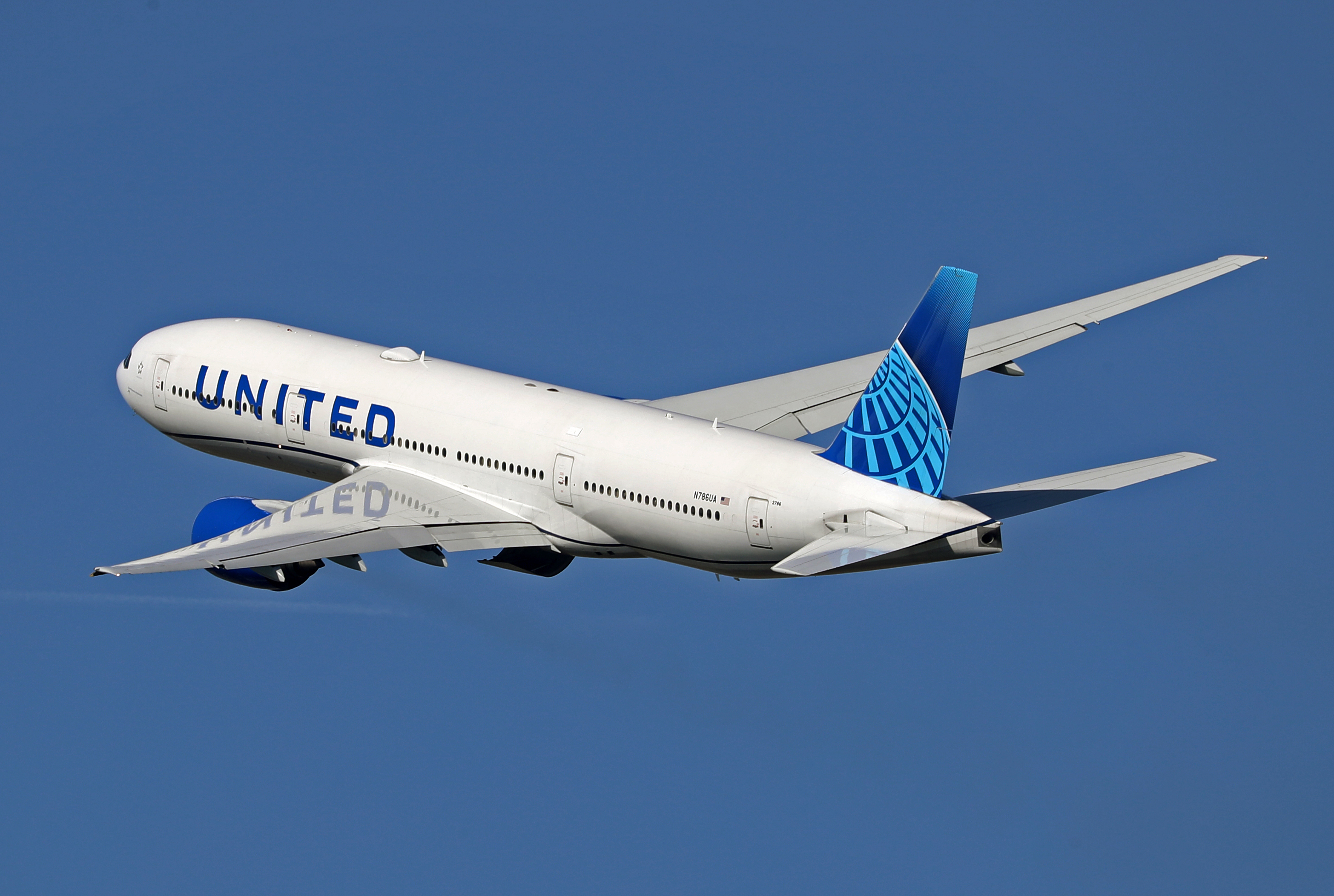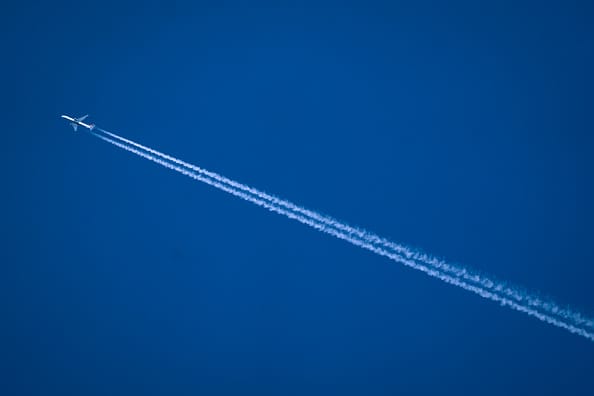A Singapore Airlines flight hit severe turbulence over the Indian Ocean and descended 6,000 feet (around 1,800 meters) in about three minutes, the carrier said Tuesday. A British man died and authorities said dozens of passengers were injured, some severely.
An airport official said the 73-year-old man may have had a heart attack, though that hasn't been confirmed. His name wasn't immediately released.
The Boeing 777 flight from London's Heathrow airport to Singapore, with 211 passengers and 18 crew members aboard, was diverted and landed in stormy weather in Bangkok.
British passenger Andrew Davies told Sky News that the seatbelt sign was illuminated but crew members didn't have time to take their seats.
"Every single cabin crew person I saw was injured in some way or another, maybe with a gash on their head," Davies said. "One had a bad back, who was in obvious pain.”
Dzafran Azmir, a 28-year-old student on the flight, told ABC News: “Some people hit their heads on the baggage cabins overhead and dented it. They hit the places where lights and masks are and broke straight through it.”
Kittipong Kittikachorn, general manager of Suvarnabhumi Airport, told a news conference that the sudden descent occurred as passengers were being served food.
He said seven passengers were severely injured, and 23 passengers and nine crew members had moderate injuries. Sixteen with less serious injuries received hospital treatment and 14 were treated at the airport. He said the British man appeared to have had a heart attack but medical authorities would need to confirm that.
Feeling out of the loop? We'll catch you up on the Chicago news you need to know. Sign up for the weekly> Chicago Catch-Up newsletter.
A later statement from Samitivej Srinakarin Hospital said 71 people had been treated there, including six who were severely injured. No explanation of the discrepancy was available.
Tracking data captured by FlightRadar24 and analyzed by The Associated Press show the Singapore Airlines flight SQ321 cruising at an altitude of 37,000 feet (11,300 meters).
At one point, the Boeing 777-300ER suddenly and sharply descended to 31,000 feet (9,400 meters) over about three minutes, according to the data. The aircraft then stayed at 31,000 feet (9,400 meters) for under 10 minutes before diverting and landing in Bangkok less than a half-hour later.
The sharp descent occurred as the flight was over the Andaman Sea, near Myanmar. The aircraft sent a “squawk code” of 7700 at that time, an international emergency signal.
Details of the weather weren't immediately available.
Most people associate turbulence with heavy storms, but the most dangerous type is so-called clear air turbulence. Wind shear can occur in wispy cirrus clouds or even in clear air near thunderstorms, as differences in temperature and pressure create powerful currents of fast-moving air.
The problem of turbulence was highlighted in December, when a total of 41 people on two separate flights hit by turbulence in the United States were hurt or received medical treatment on two consecutive days.
According to a 2021 report by the U.S. National Transportation Safety Board, turbulence accounted for 37.6% of all accidents on larger commercial airlines between 2009 and 2018. The Federal Aviation Administration, another U.S. government agency, said after the December incidents that there were 146 serious injuries from turbulence from 2009 to 2021.
Boeing extended condolences to the family of the dead man and said it was in contact with Singapore Airlines "and stand ready to support them.” The wide-body Boeing 777 is a workhorse of the aviation industry, used mainly for long-haul flights by airlines around the world. The 777-300ER variant of the twin-engine, two-aisle plane is larger and can carry more passengers than earlier models.
Singapore Airlines, the city-state’s flag carrier, operates 22 of the aircraft as part of its fleet of more than 140 planes. The airline’s parent company is majority owned by Singapore’s Temasek government investment conglomerate and also operates the budget airline Scoot.
Thailand’s transport minister, Suriya Jungrungruangkit, said Singapore was dispatching another plane to transport those who could travel. It arrived in Bangkok on Tuesday night.
Singapore Transport Minister Chee Hong Tat in a Facebook post said his ministry and Singapore's Foreign Ministry, as well as the country's Civil Aviation Authority and Changi Airport officials along with airline staff, “are providing support to the affected passengers and their families.”
The ministry's Transport Safety Investigation Bureau said it was in touch with its Thai counterpart and would deploy investigators to Bangkok.
Singapore Airlines said the nationalities of the passengers were 56 Australians, two Canadians, one German, three Indians, two Indonesians, one from Iceland, four from Ireland, one Israeli, 16 Malaysians, two from Myanmar, 23 from New Zealand, five Filipinos, 41 from Singapore, one South Korean, two Spaniards, 47 from the United Kingdom and four from the United States.
___
Associated Press writers Eileen Ng in Kuala Lumpur, Malaysia, and Jon Gambrell in Dubai, United Arab Emirates, contributed to this report.



